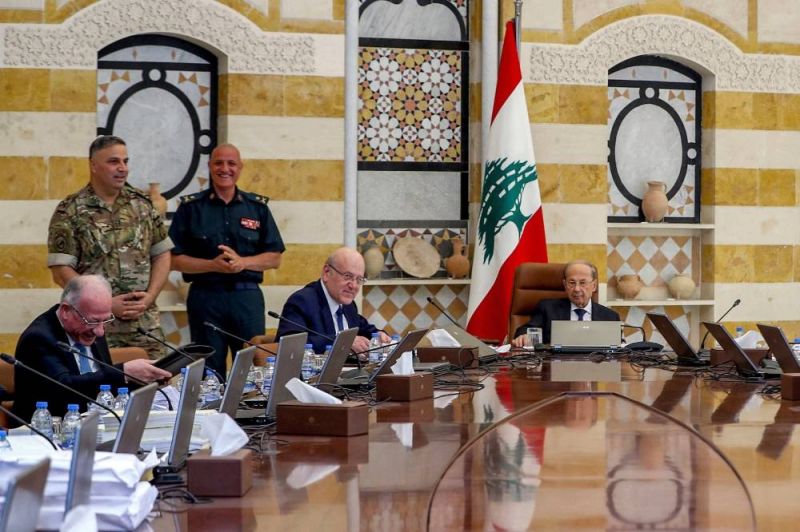
President Michel Aoun and Prime Minister Najib Mikati headed the cabinet meeting on Friday. (Credit: Dalati and Nohra)
Want to get the Morning Brief by email? Click here to sign up.
As of yesterday, Najib Mikati’s government entered caretaker status and has limited decision-making power. It will remain in caretaker status until the newly elected Parliament agrees on a new government, which past experience shows could take months. First on the parliamentary agenda is electing a speaker — no date has been set for that session. MP Nabih Berri has held the position for 30 years, but several factions in Parliament are making noises that they would like to see him unseated. But before we get a new speaker election, the new Parliament needs to be sworn in, and there is not yet even a date for that ceremony. So, for the time being, Lebanon seems set to reset to an all-too-familiar default — a caretaker government muddling along with protracted wrangling over appointments in the background.
An economic recovery plan and “financial sector rehabilitation strategy” were approved by the cabinet on Friday at its final session before entering caretaker status. The approved plans are similar to the version leaked in April with the notable exception of the removal of the guarantee of deposits up to $100,000. Mikati said in a speech following the session, however, that the government had agreed with the International Monetary Fund to secure deposits up to $100,000. According to the plan documents, the guarantee will only apply to banks that are solvent, meaning that the people who need the guarantee the most — the customers of bankrupt banks — won’t get it.
Telecoms tariffs will be hiked starting July 1 as part of a new plan for the sector passed by cabinet on Friday. Alfa and MTC will raise their rates fivefold, while Ogero will increase its charges 2.5 times. The new rates will be a substantial burden on a population exhausted by two years of economic crisis, in which lira-denominated wages have lost most of their value. Telecoms Minister Johnny Corm said the move is needed to prevent the network from collapsing and return the system to profitability.
The lira continued to trade below LL32,000 to the US dollar over the weekend. The difference between the rate on the parallel market and the central bank’s Sayrafa platform rate continues to widen, indicating that the central bank’s attempts to stabilize the currency are becoming less effective. The persistent collapse of the lira against the dollar has caused further price increases. On Friday the Central Administration of Statistics announced that the latest year-on-year inflation rate has reached 206.24 percent.
The committee of pharmacy owners in Lebanon have announced a strike for Tuesday, May 24, to denounce stock shortages and demand an increase in the price of drugs. The strike action comes as the lira loses value. “As with each increase in the dollar-lira rate, importers of medicines cease their deliveries to pharmacies,” the pharmacy owners said in a statement. They are demanding the Health Ministry adopt a new price schedule on a weekly basis.
In case you missed it, here’s our must-read article from over the weekend: “What can the opposition forces do now?”